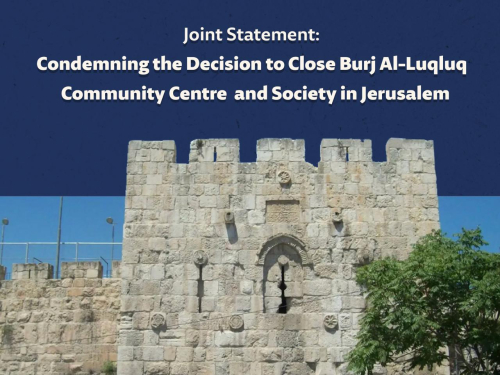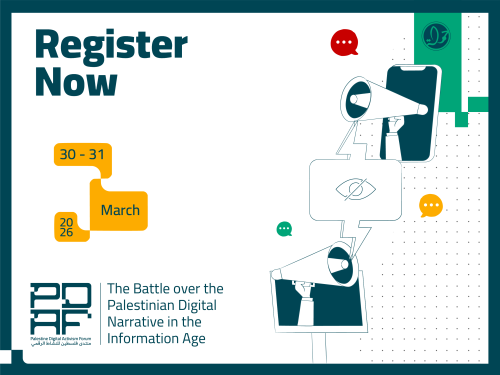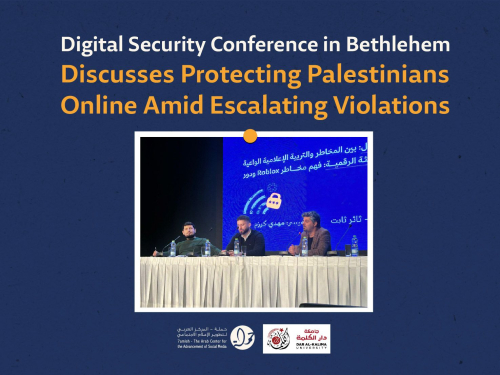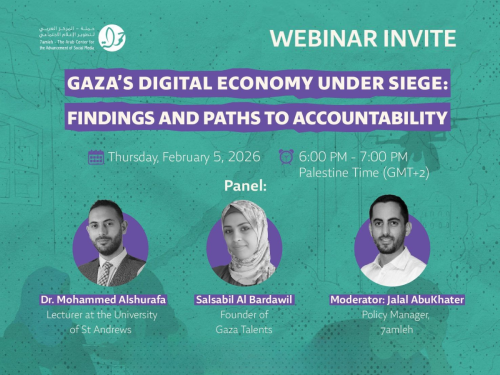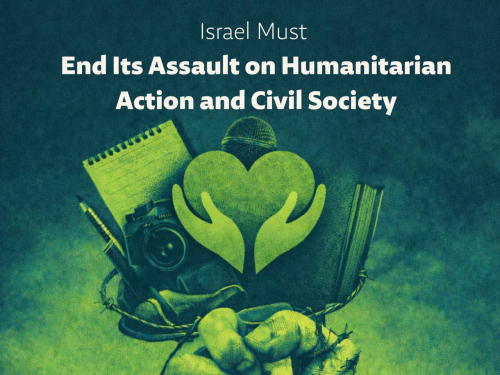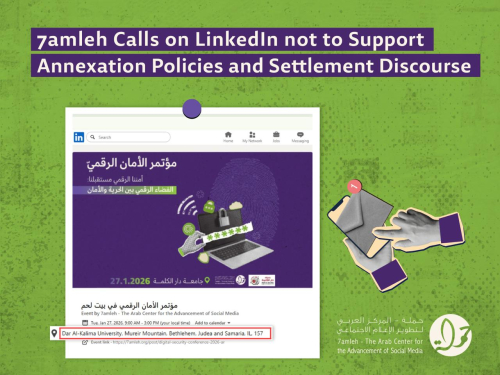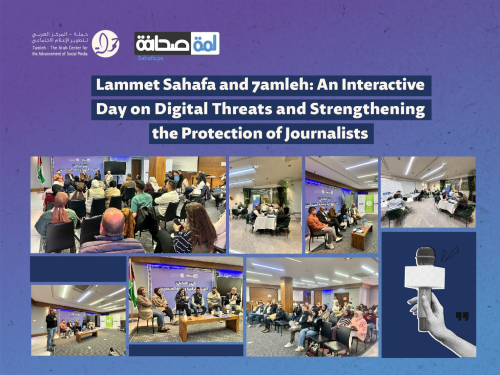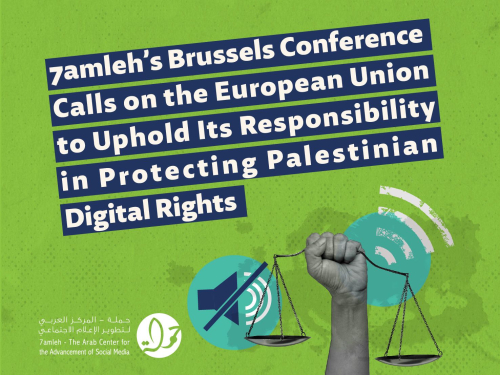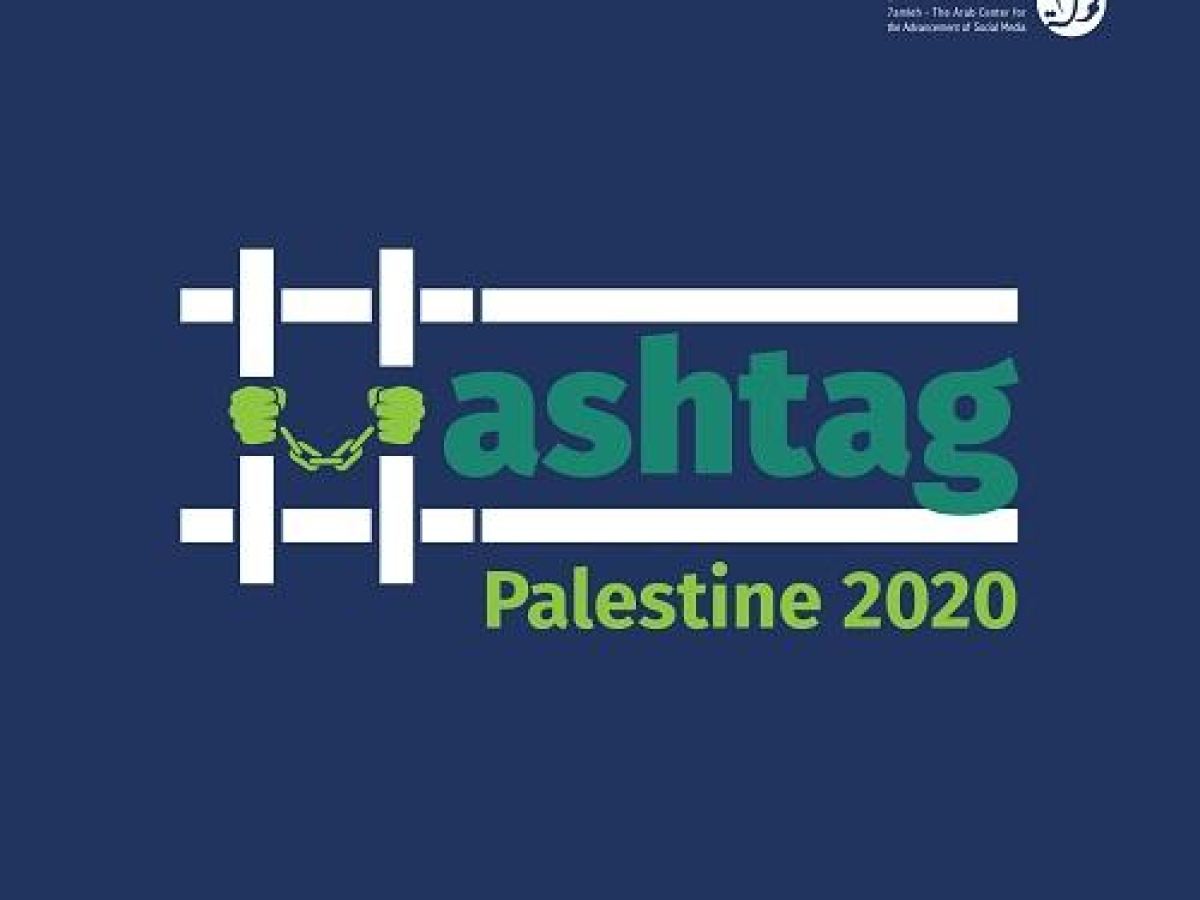
On Monday, 10 May 2021, 7amleh - The Arab Center for the Advancement of Social Media launched its annual report on Palestinian digital rights, entitled “#Hashtag Palestine 2020.” The report details violations that took place in 2020, and specifically during the coronavirus pandemic, by authorities, technology companies and the Palestinian society itself.
In 2020, 7amleh reported that the Israeli authority expanded its surveillance of Palestinians, and approved emergency regulations and the use of applications that violated people’s rights to privacy. On the other hand, the Palestinian Authority passed a new emergency law in response to the pandemic, that prohibited anyone other than legal authorities from spreading news about the pandemic, and arrested over 20 Palestinians in connection to their posts on social media. Further, the de facto authority in Gaza (Hamas), continued to arrest and charge Palestinians with “indecency” to censor and silence criticism of their authority.
As for technology companies, 7amleh reported that social media platforms such as Facebook, WhatsApp, and Twitter, continued to collaborate with Israeli security units, and Palestinian content online continued to be censored indiscriminately as a result of the policies of platforms. Similarly, Facebook continued to remove Palestinian content And accepted 81% of requests made by Israel’s Cyber Unit to do so, and Twitter suspended tens of accounts of Palestinian users based on information from the Israeli Ministry of Strategic Affairs. Further, Zoom refused to host an event with the Palestinian activist Leila Khaled that was organized by students and professors at San Francisco State University, Qoura limited Palestinian history professor Rima Najjar Merriman access to the platform, and TikTok and YouTube continued to allow videos that celebrate Israeli military violence on their platform.Palestinians also continued to be discriminated against when it comes to accessing the digital economy. For instance, while Amazon finally launched in Israel and the occupied Palestinian territory in 2020, it only enabled Israelis and Israeli settlers to be sellers on the platform.
#Hashtag Palestine 2020 also offers insights into the ways in which inequities and traditional customs and norms in the Palestinian society, have also contributed to violating the digital rights of indviduals. Specifically, 7amleh reported an increase in violations against women and members of the LGBTQI+ community during the pandemic.
Lastly, as an added component to this year’s #Hashtag Palestine analysis, 7amleh implemented
a Human Rights Organizations survey, developed with the purpose of gathering the
perspective of leading human rights organizations, journalists, and activists within our networks. The survey of 20 organizations found that 44% had experienced being smeared online.
Read the full report here: Click here
Related Articles
Subscribe to Our Email Alerts
And stay updated with our latest activities, news, and publications!

